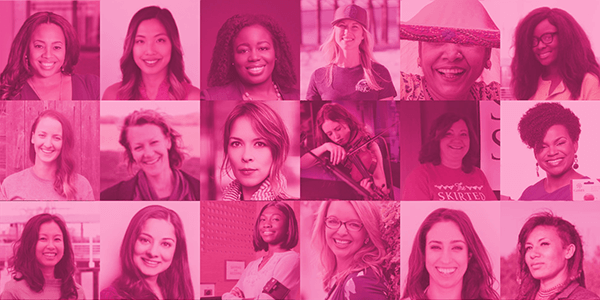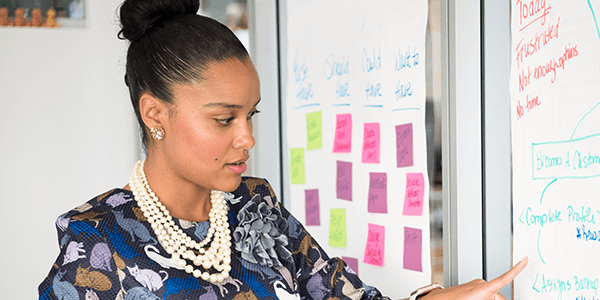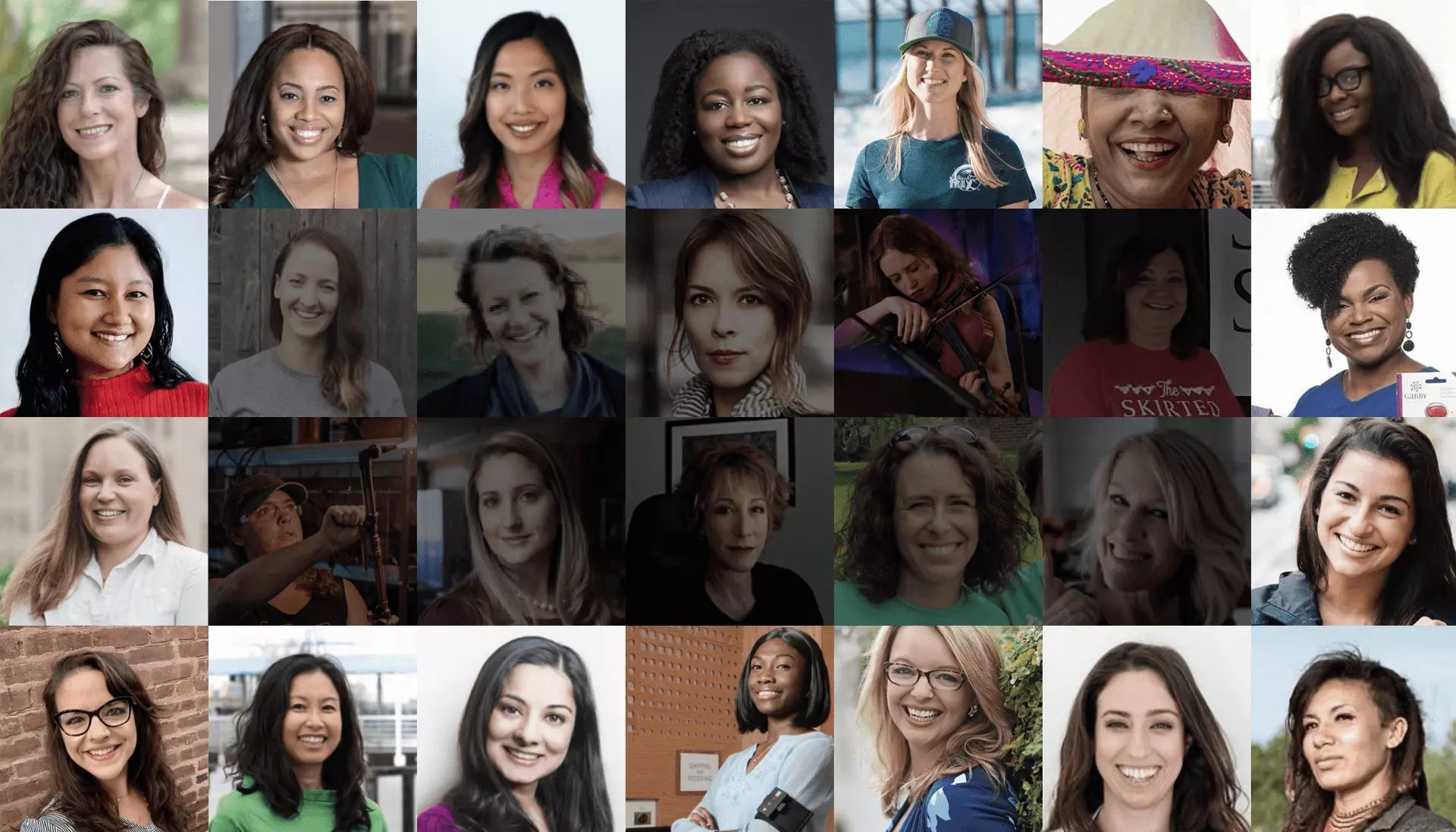

May 20, 2021
April 2021 Amber Grant Awarded to Suite Creative Studio

Suite Creative Studio
Woman Entrepreneur:
Jessica Owusu-Afriyie
Her Website:
https://suitecreativestudio.com
We’re thrilled to announce the $10,000 April Amber Grant recipient. Congratulations to Jessica Owusu-Afriyie, Founder of Suite Creative Studio. SCS provides fashion design, development and production services to bring clients’ ideas to market.
Jessica is the fifth qualifier for the 2021 year-end Amber Grant ($25,000).
Recently, WomensNet Advisory Board member Marcia Layton Turner sat down with Jessica for an exclusive interview. You can listen to their conversation and view the transcript below.
Video Transcript
WomensNet: Welcome everyone to a chat with our latest WomensNet winner of the Amber Grant. Today, we’re speaking with Jessica Owusu-Afriyie of Suite Creative Studio, who’s the Amber Grant winner for April, 2021. I’m Marcia Layton Turner. And I’m one of the members of the WomensNet Advisory Board.
So, Jessica, welcome. Let’s start at the beginning. Why don’t you tell us a little bit about your business, beginning with why you started it.
Jessica: Just to start, I do want to say thank you again for this opportunity. It’s so amazing. I just really appreciate this grant and what it can do for my business.
I started my business about four years ago after I had spent over a decade in the fashion industry. I had worked my way up from design assistant to design director for a private label and branded licensing company. I found myself out of work with a young child. I was looking for what was my next step and what was my next move. I did a lot of interviewing and really at the end of the day what I decided to do was follow my passion in the [fashion] industry.
I love working in design, but I was really being called and pushed to working with more sustainable brands. More ethically focused brands. The industry can get kind of a bad rap sometimes with the amount of waste that is produced. I wanted to have a little bit more power to choose who I was working with, so that I could be proud of the brands that I worked with and the product that I ultimately created. So I started Suite Creative Studio as a resource for other brands to work with us on a design and development basis. We work with our clients on product-based services — everything from creative design to market-ready product, and everything in between.
So there are many steps that go from having the idea for a product to having that product in hand and ready to sell to your consumer. And we help with all of those steps. Our team is very experienced and well-versed in creative design, technical design, sourcing materials, sourcing manufacturers; negotiating and communicating with the manufacturers on our client’s behalf as well.
We focus on a few categories. Namely intimate apparel [which is] one of our niche categories. Swimwear and active wear. Those are our three biggest categories. We also work with ready-to-wear, which is our everyday clothing, and some accessories as well. As a company initiative, sustainability is really important to us. It is definitely the way of the world; it’s the way the industry needs to go. So that is something that we work to implement within our clients brand development, wherever we can, regardless of whether or not the brand is specifically looking to be a sustainable brand.
WomensNet: I’m picturing the process. So let’s say I’m a big name swimwear company, and I know that we want to create a new line and we’re looking for support. So I can come to Suite Creative Studio and ask for help developing something totally new, right? And you can guide me in sustainable options, if, if my goal is to become more sustainable.
Jessica: Absolutely. We work with companies and clients of all sizes. We work with clients that are established, and have their own maybe internal teams, but are looking for an outside resource or as a private label option for maybe a new category.
Or maybe like you said, to incorporate sustainability if they are not already doing it in house. Even the largest brands out there typically will have some level of external resources for design and development in addition to their in-house resources and their in-house teams.
And then all the way down to pre-launch businesses as well. We work with clients that haven’t even gone to market yet. Maybe they just have an idea of the product they want to create, and they may not have the technical design background. They may not have the creative design background to refine their design to make it something that is marketable and viable. So we work with people across the map, as far as stages of either development or brand growth.
WomensNet: I’m so interested in this topic because we hear so much about the H and M and the fast fashion and how terrible it is for the environment. Do you see rising demand for more sustainable options, sort of as a backlash against this fast fashion?
Jessica: Yes, absolutely. The sustainable fashion category has been something that’s been growing for a long time. So there’s a lot of talk about it right now, but it didn’t start two years ago or five years ago. It started honestly decades ago, but it’s been building steam. And for sure, the last 10 years there’s been some gasoline on that fire and people are really starting to pay attention — from the consumer level, as well as from the manufacturer level. And that’s one of the most important aspects because we have to show that it’s something that’s wanted. And then we have to put the responsibility on the manufacturers in order to choose better options.
So use less toxic chemicals or non-toxic chemicals. In the dye process, can we use less water? Can we use organic materials or recycled materials? The consumer can’t get that until the manufacturer also makes that commitment and offers those options. So there’s a lot of innovative and more forward thinking manufacturers and vendors out there of materials and trims, that have been working on these initiatives for a long time. We’re getting to the place where demand and possibility is starting to come true. We’re able to really start buying into more sustainable options, whether it be a less toxic option or a more natural option. People are doing amazing things with with recycling, for sure.
[Also] working with new natural fibers or working with natural fibers in a new way. Also looking to eliminate animal products in the process as well. There are amazing companies out there that are working with vegan leathers that are not the 20 years ago, polyurethane leather that is vegan, but it wasn’t the better option. Now, it’s becoming the better option. So it’s being made out of cactus or mushroom, or coconut leaf — all these interesting, amazing things. Being experts in the industry, we’ve had our finger on the pulse of this movement for 15 years, and we’re able to kind of help brands and support them into knowing that these options are out there, and then finding them, and cultivating them over the course in the life of a brand.
And so the demand is definitely there. I think the consumer is very used to fast fashion. We’ve gotten very used to it and the price point specifically. So that’s a hurdle because I think most consumers want a more sustainable option — but they want it to be the same price. So that’s where the industry is now trying to work on making that happen, and eventually it will 100% will happen. But we are inching our way there.
WomensNet: This sounds like an exciting time to be in the industry when all this change is happening.
Jessica: It sure is. It’s definitely a fun industry in general. It’s very grueling. It’s very challenging, but it is very fun. It’s very rewarding. There’s so much change. There’s definitely a major shift in the industry right now. Also a shift towards kind of disruptor startup brands. There’s a major opportunity for startup brands to kind of enter and do something new and put their spin on it and really make a big difference.
WomensNet: What do you think has been the secret to your success so far?
Jessica: Starting my company was really just to feel great about what I do. Admittedly, sometimes in this industry, you don’t. Because of either the product that’s being made, or the conditions that it’s either coming from or creating. I just really wanted to actively make a different choice within my career. And I felt that it had to be possible, to still be in this industry, but feel really good about what I’m doing. I love the people that I work with. And so that’s something that I live with every single day. The clients that we work with are amazing.
I have created friendships with my clients as well. Ultimately, I really want to see them succeed and to build these great businesses for themselves and their legacy. Something that can really change the market and also just change our idea of what’s possible. And to know that there are ways to do things. There are other ways to do things and what we see being done. So I think just trying to stay true to my passion and my belief in working with great people and wanting to leave a positive impact from what I do.
WomensNet: What made you decide to apply for an Amber Grant? Did you have a particular need that you were trying to meet?
Jessica: Yes. Our business has been growing. We’ve been lucky for sure to have come out of a really tough year in a good place. We’re basically looking to expand our reach to work with even more companies. 85% of our clients are women-owned businesses. We really want to focus on cultivating these women-owned businesses, minority-owned businesses, to be able to see more inclusion and more representation in this industry — in an impactful way.
In order to do that, we really need to grow our team as well. So the reason why I applied was really to help facilitate in that. With any company growth, there’s a cost to growth for sure. Building our team and what is involved, as far as purchasing computers, purchasing additional software — those are the types of things that we really need to build out. It is a big upfront cost. But for our company, it’s important and necessary right now.
WomensNet: So it sounds like the $10,000 will allow you to start adding to your team immediately?
Jessica: Absolutely. We have somebody starting in two weeks, which I am very excited about. I am looking to stretch this as far as it can go. Sourcing the things that we need — computers and things like that — that are either second hand or refurbished or whatever, so that we can really leverage this opportunity for growth.
WomensNet: Looking ahead, even farther into the future, what are some future plans that you may have for the company. Two years ahead or five years ahead?
Jessica: Sustainability is a major initiative going forward. So working to be more and more sustainable, I plan to start working with 3d prototyping. That is basically something that can cut out a stack or two of sample making, which can save materials [from being] wasted. It can even lower your carbon footprint from shipping and transit and things like that. And also help with expediting lead times for the sample and development process. It’s an exciting new direction that the industry is going in and starting to implement more and more. The software is quite costly, but that’s something that we’re working towards and working to develop and get into in the next couple of years.
We’re also looking to eventually start a scholarship program. It’s something that I have been wanting to do for a very long time. Because starting a business in general — and an apparel brand specifically — is a big undertaking and it can be very costly. Sometimes that is a barrier of entry that does not allow for everyone to take that risk, even if they have what it takes.
I would really love to build in a scholarship program to bring on, maybe a couple of brands per year, and get them to market and aid in their growth. So we would be focusing, again, still on the women and minority communities to bring their ideas to life and be able to pay forward the opportunities that we’ve been given as well.
WomensNet: Do you have any advice for aspiring women entrepreneurs, anything you’ve learned along the way that you think might be useful or helpful?
Jessica: We all know business is challenging. It can be scary. And we have our ups and we have our downs. But when it comes to business, you’re never going to be as up or as down as you are forever. It’s not permanent. Things come in waves. We have peaks, we have valleys. I think it’s most important to really enjoy the ups, but also prepare for the downs because they will come.
But if you are prepared for it and resilient, you’ll get through it and you will live to see another day in business. In the thick of things, sometimes when we’re working on things so closely, it’s really hard to see what we’re accomplishing or what we’re even getting through. And sometimes you just need a little bit of space to look back and then appreciate what you’ve achieved or what you’ve overcome.


















